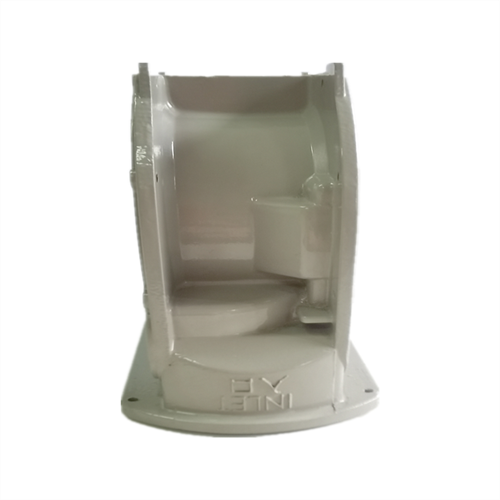Aluminum Die Casting Parts Housing: Strength, Precision, and Versatility
2023-10-18
Introduction:
Aluminum die casting is a widely used manufacturing process for producing high-quality and complex metal parts. When it comes to housing components, aluminum die casting offers exceptional strength, precision, and versatility. In this blog, we will explore the advantages of aluminum die casting for housing parts, examining its features, applications, and benefits in various industries.
The Strength of Aluminum Die Casting:
Aluminum die casting produces housing parts with excellent strength-to-weight ratios. Here's why:
1. Lightweight yet Sturdy: Aluminum is a lightweight material, making it ideal for applications where weight reduction is essential, such as automotive, aerospace, and electronics. Despite its lightweight nature, aluminum die casting ensures the production of robust housing parts that can withstand demanding operating conditions.
2. Structural Integrity: The die casting process enables the creation of housing parts with intricate designs and complex geometries. This results in components with enhanced structural integrity, providing optimal protection for the internal components or systems they enclose.
Precision and Consistency:
Aluminum die casting offers exceptional precision and consistency, ensuring the production of housing parts with tight tolerances and accurate dimensions. Here's how it achieves this:
1. Intricate Details: The die casting process allows for the replication of intricate details, such as fine surface textures, logos, and branding elements. This precision enhances the aesthetic appeal of the housing parts, making them visually appealing and aligned with the overall product design.
2. Consistent Reproduction: Die casting ensures consistent reproduction of housing parts, regardless of the batch size or complexity. This means that every housing component produced will have the same high-quality finish, dimensions, and functionality.
Versatility in Design and Applications:
The versatility of aluminum die casting makes it suitable for a wide range of housing applications. Here are some examples:
1. Automotive: Aluminum die casting is widely used in the automotive industry for housing components such as engine blocks, transmission cases, and electrical system enclosures. The strength, durability, and heat dissipation properties of aluminum make it an excellent choice for these applications.
2. Electronics: The housing for electronic devices, such as smartphones, laptops, and tablets, often utilizes aluminum die casting. The process enables the creation of lightweight yet robust casings that protect sensitive electronic components and dissipate heat effectively.
3. Industrial Machinery: Aluminum die casting finds applications in the housing of various industrial machinery and equipment. It provides protection and support for critical components, ensuring the durability and reliability of the machinery in demanding environments.
Benefits of Aluminum Die Casting for Housing Parts:
1. Cost-Effective Production: Aluminum die casting offers cost advantages, as it allows for the mass production of housing parts with minimal post-processing requirements. The high production efficiency and repeatability of the process contribute to cost savings.
2. Enhanced Heat Dissipation: Aluminum has excellent thermal conductivity, making it an ideal choice for housing parts that require effective heat dissipation. This is crucial for applications where heat management is essential to maintain optimal performance and longevity.
3. Corrosion Resistance: Aluminum possesses natural corrosion resistance, providing durability and longevity to housing parts. This makes it suitable for outdoor or harsh environment applications where protection against corrosion is crucial.
Conclusion:
Aluminum die casting is a highly efficient and versatile manufacturing process for producing housing parts. Its strength, precision, and versatility make it an excellent choice for a wide range of industries and applications. Whether in automotive, electronics, or industrial machinery, aluminum die casting ensures the production of lightweight yet robust housing components that provide protection, structural integrity, and optimal performance. With its cost-effective production, excellent heat dissipation properties, and corrosion resistance, aluminum die casting continues to play a crucial role in shaping the future of housing design and manufacturing.



